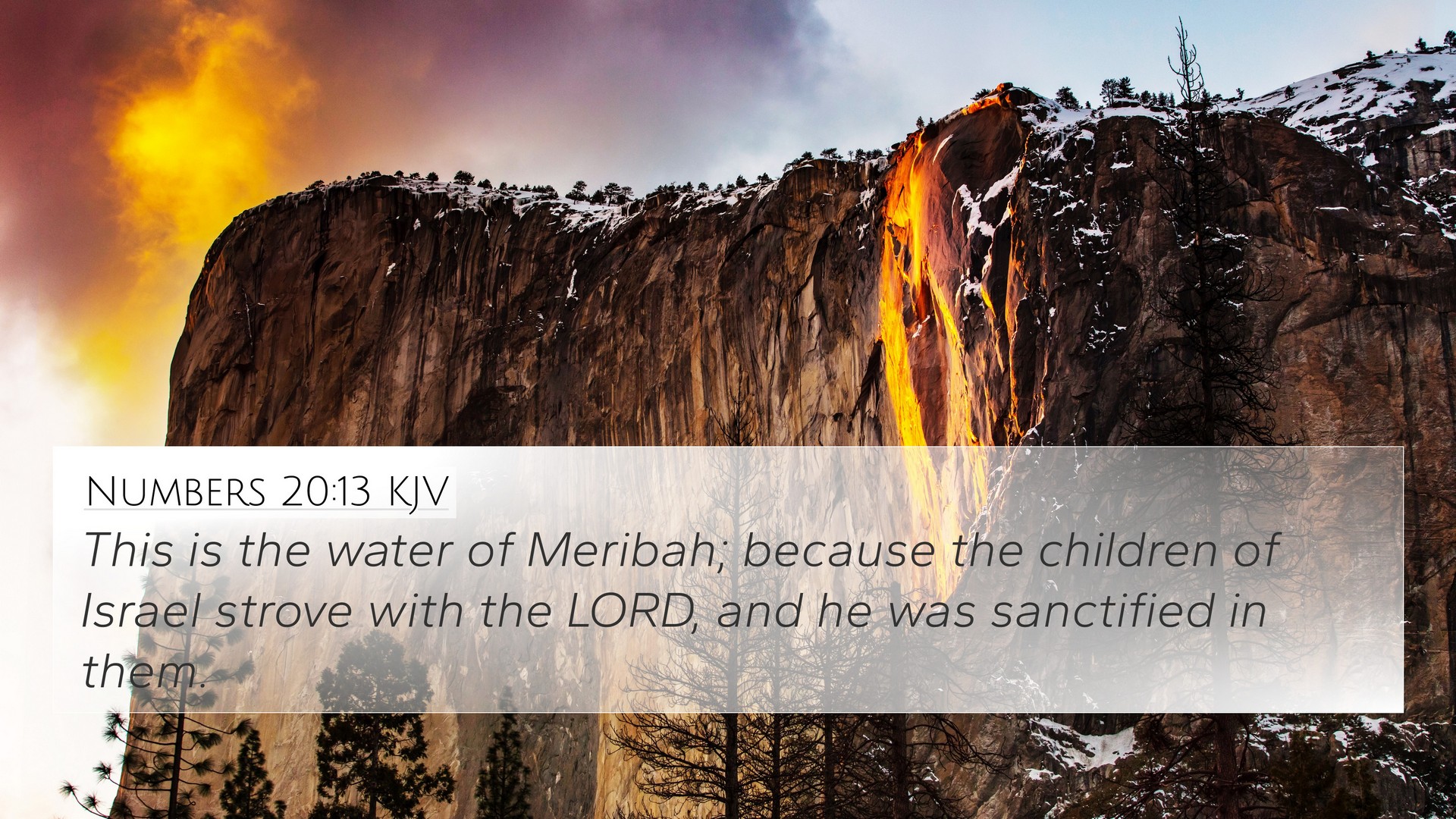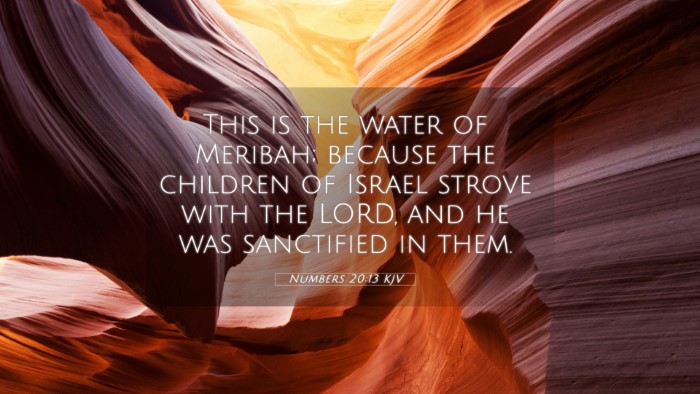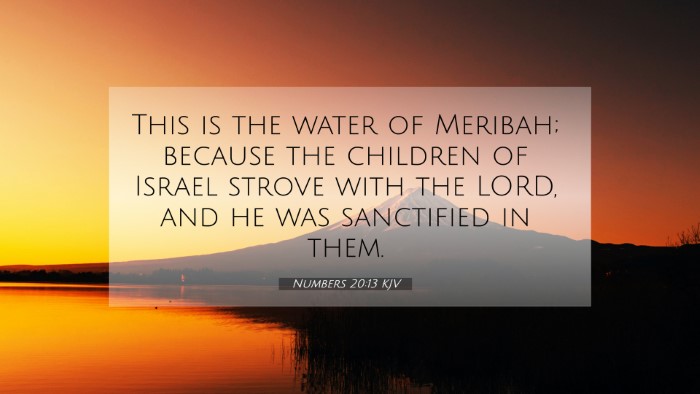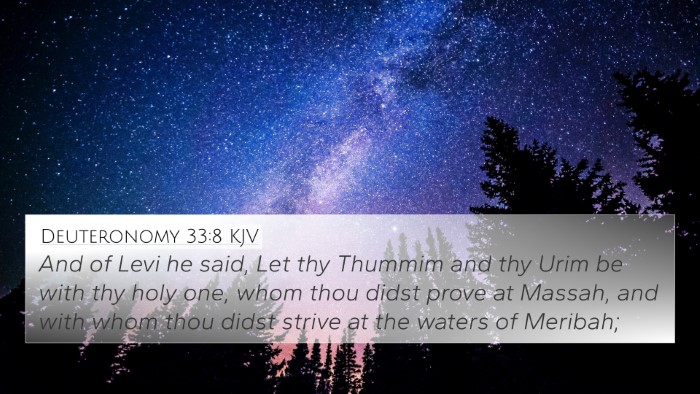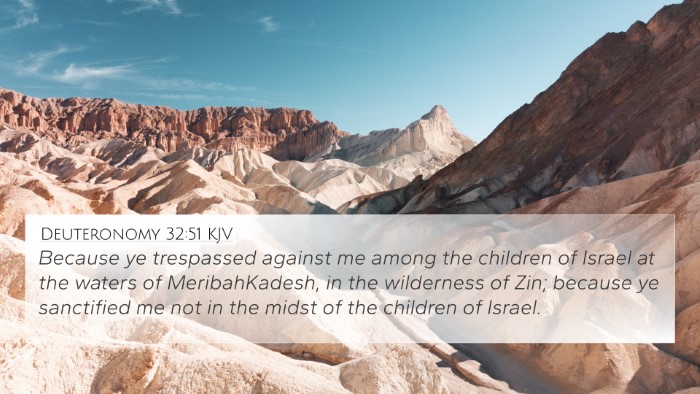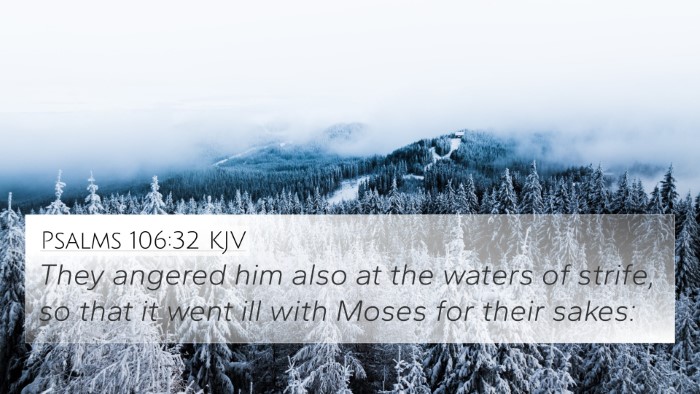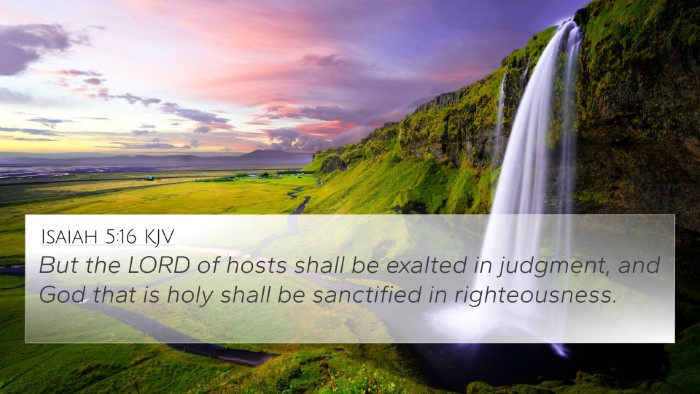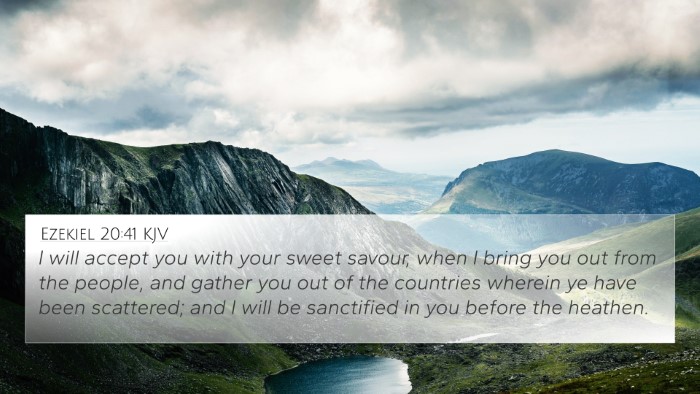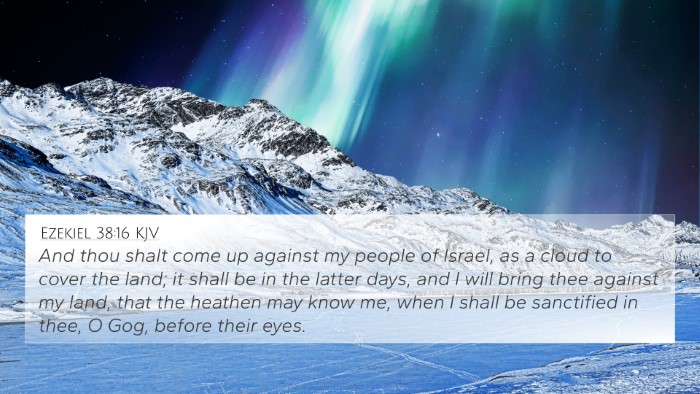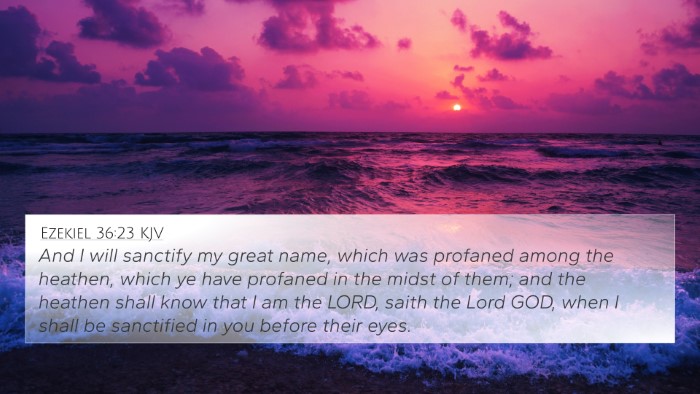Understanding Numbers 20:13
The verse Numbers 20:13 states, "This is the water of Meribah, because the children of Israel contended with the Lord, and He was sanctified in them." This passage is significant in the context of the Israelites' journey through the wilderness, demonstrating both God's holiness and the consequences of disobedience.
Summary of Insights from Public Domain Commentaries
Based on insights from Matthew Henry, Albert Barnes, and Adam Clarke, we can summarize the meaning of Numbers 20:13 as follows:
-
Divine Authority and Holiness: The place named Meribah serves as a reminder of God's holiness. The contention of the Israelites was not merely a disagreement among themselves but a challenge to God’s authority. The way God was "sanctified" in this situation implies that His response to their disputes upheld His holiness (Matthew Henry).
-
The Consequence of Rebellion: The verse encapsulates the result of the Israelites' rebellion against God. The waters of Meribah symbolize both God's provision (by providing water) and the judgment upon the people for their lack of faith, which was an act of contention against Him (Albert Barnes).
-
Reflection of God’s Character: Adam Clarke points out that God's reaction to the Israelites’ contention demonstrates His nature. He remains just and holy, even in the face of human disobedience. This duality shows that God's provision comes hand-in-hand with the responsibility of revering Him.
-
Importance of Context: Understanding the historical and cultural background of the Israelites during this passage is crucial. Their experiences in the wilderness illustrate broader themes of faith, obedience, and God's unwavering presence among His people (Adam Clarke).
-
Lessons for Today's Believers: This verse teaches modern believers about the importance of reverence towards God. It serves as a lesson on how disputes with divine authority can have dire consequences, encouraging faithfulness and trust in God's plan (Matthew Henry).
Bible Cross-References
To deepen the understanding of Numbers 20:13, here are relevant cross-references:
- Exodus 17:1-7 - The narrative of water from the rock when the people first complained.
- Deuteronomy 32:51-52 - God's discipline concerning Moses due to the event at Meribah.
- Hebrews 3:7-11 - A New Testament reference that highlights the hardening of hearts like those at Meribah.
- 1 Corinthians 10:4 - Paul mentions the spiritual rock that followed them, highlighting Christ's presence.
- Psalms 95:8-11 - A reflection on the rebellious nature of the Israelites that leads to God's anger.
- James 1:20 - Speaking to the nature of wrath, which aligns with the contention seen at Meribah.
- Romans 3:5-6 - Addressing the righteousness of God in judgment parallels the sanctification noted in this verse.
Thematic Bible Verse Connections
Numbers 20:13 connects with themes of divine provision, judgment, and holiness. These themes echo throughout various scriptures, creating an inter-Biblical dialogue. The connections between Bible verses reveal a cohesive narrative of God's engagement with humanity. Believers can explore:
- Biblical instances where God provided amidst rebellion (e.g., Matthew 4:4).
- Discussions around faith and the consequences of disbelief (e.g., 2 Peter 2:9).
- Comparative analysis of Old and New Testament themes of redemption and correction (e.g., Matthew 12:7).
Tools for Bible Cross-Referencing
To study cross-references effectively, one may utilize various tools for Bible cross-referencing:
- Bible concordance - A valuable resource for locating specific verses and their connections.
- Bible reference resources - Books and websites that consolidate thematic connections across scriptures.
- Bible cross-reference guides - Systems designed to help navigate between similar verses.
- Cross-reference Bible study methods - Strategies for digging deeper into thematic literature.
Conclusion
In conclusion, Numbers 20:13 offers profound insights when examined in light of public domain commentaries and various scripture connections. By exploring this verse deeply, believers are invited to engage with a holistic view of God’s character and His relationship with humanity. The thematic study encourages personal reflection on faith and the essence of divine authority.
